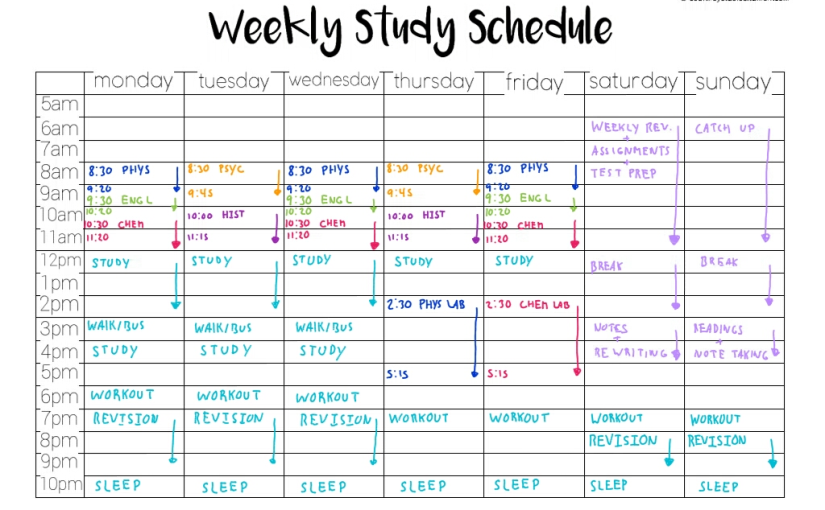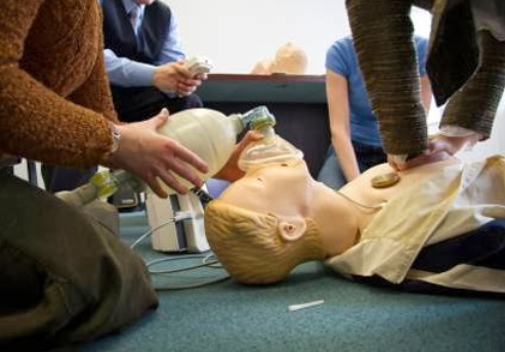Hello Snarklings,
Ok so my sophomore year of university is well underway (I start on the 5th of September!) and I was hoping to give you an idea on how I plan out my study schedule for college. This is based on my personal experience so it may or may not work for you but planning ahead is one key factor that ties in success for anyone who wants to do well in school.
Okay, so this is going to require some basic math. Don’t worry it’s not that scary and pretty straightforward. So in one week, we have 168 hours and we do a lot of stuff like eating, sleeping, doing chores, working out, going to classes, and of course studying. So the question is how many hours do I have left after doing these things? The saying is that for every hour of class we need to commit 2 to 3 hours of study. In most universities (but not all so check with your school’s system) in North America, a “half course” is usually 3 units while a “full course” is 6 units which you can use to log in your hours needed to study.
They say that if you’re taking a full load (usually 5 courses for one semester) you should hit a minimum of 35 hours of study per week. You can find out this number by using this formula: Hours in a Week (168 Hours) — Used Hours = Time Remaining to Study
- If you have more than 35 hours of study than you have extra time (which you can either use for free time or use them to get ahead and study some more).
- If you have less than 45 hours of study per week then you need to manipulate the other activities in your life to make room for that minimum of 35 hours of study
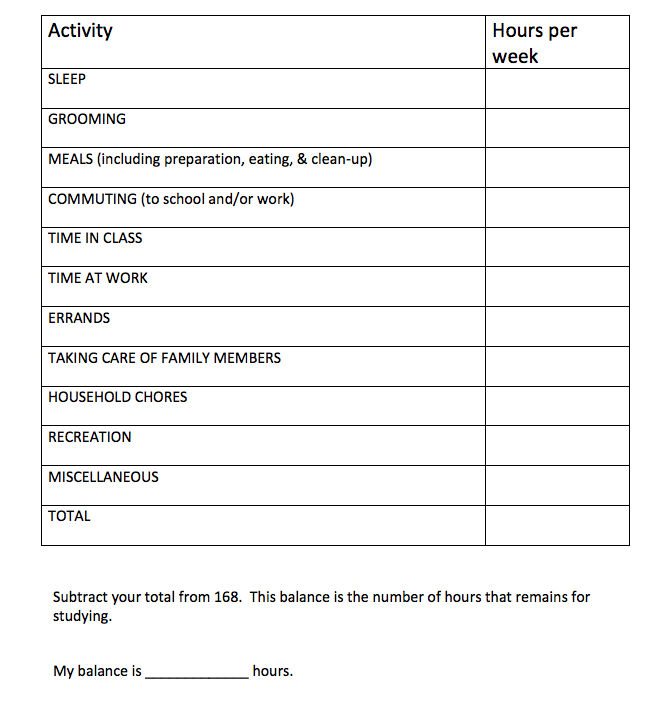
Here’s my hand written version of the above and I get a total of 115 hours used out of the 168 hours per week which gives me 53 hours of study which is good enough for me to keep up and manage (I break up the 53 hours into manageable chunks and log them on my timetable):
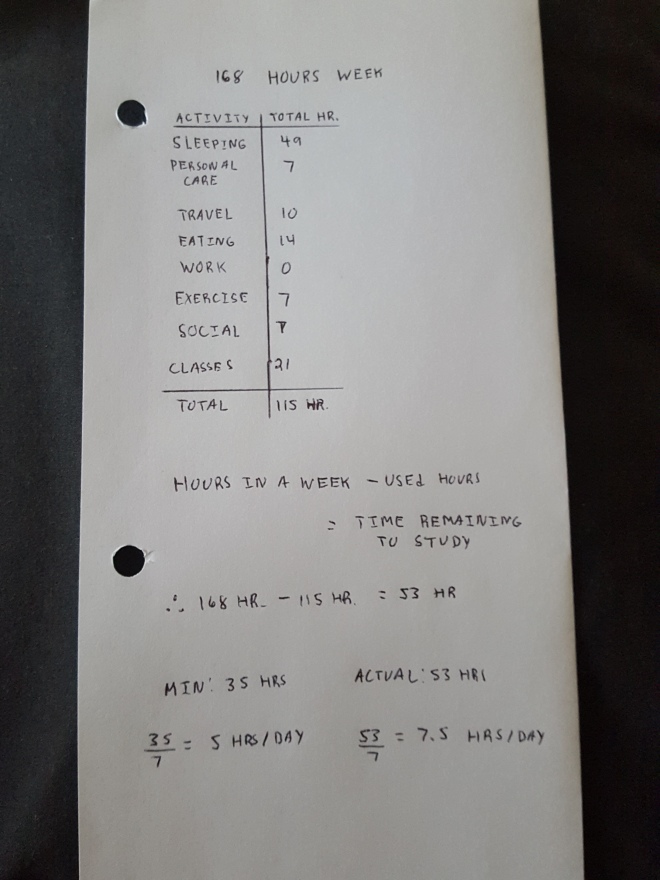
Just an extra tip, if you were to theoretically study every day (even on a Saturday and a Sunday), you can divide the remaining hours by 7 to see the approximate hours you should study each day to hit that. So the minimum is 35 hours to study so if you divide that by 7 you get 5 hours to study each day of the week to do revision and complete assignments. Since I have 53 hours, 53 hours divided by 7 gives 7.5 hours each day which is of course if I want to use those hours. Obviously, I want a life and need balance so I’ll just stick to 5-6 hours a day and use the rest for spending time with my friends. Like I said, it’s all up to you. Some days I will study 7.5 hours to get ahead since I have 53 hours. At other times I just want to hit the minimum 35 by increasing any of the other activities listed on that time activity sheet (I usually increase sleeping and/or exercising haha.)
Like I said, it’s all up to you. Some days I will study 7.5 hours to get ahead since I have 53 hours. At other times I just want to hit the minimum 35 by increasing any of the other activities listed on that time activity sheet. I usually increase sleeping and/or exercising to give me 35 hours. I can even get a part time job however, I don’t like unexpected shifts that can meddle in my study time.
In the end, you get a basic study schedule that you can use to keep yourself on track like this, which I made for my first semester of 2nd year: I LOVE COLOUR CODING!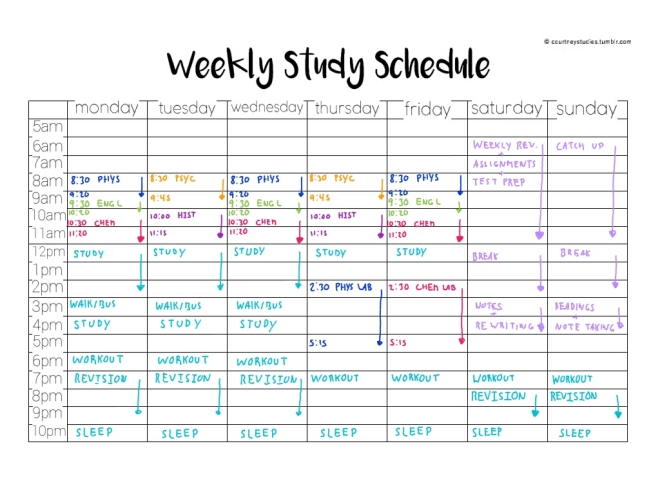
Just for review
- Approximate a number of hours that you do a certain activity for the whole week
- Add them up then subtract 168 hours from that number to give a number of hours remaining to study
- Adjust the hours of certain activities to hit the minimum 35 hours of study per week or use those extra hours to either study more or have fun (it’s your decision since you’re an adult right?)
- Log those activities on a designated time table and you’re good to go.
- Try to stick to this plan as much as possible. If not then looks like you have to face the consequences or compromise (another part of being an adult).
If you have any questions please email me or leave a comment below and remember to follow my blog for more updates! Ciao for now and stay flossy guys!
